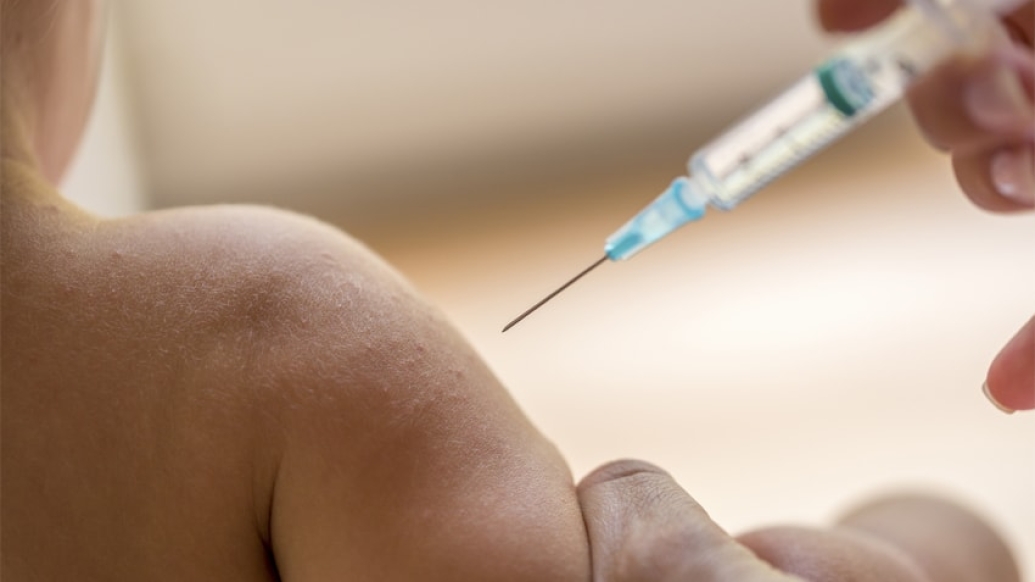Parents who delay or skip childhood vaccinations even when kids have no medical reasons are contributing to U.S. outbreaks of measles and whooping cough.
3:23 PM
Author |

Actor Robert De Niro made national headlines in March when he pulled a controversial film about vaccines from the Tribeca Film Festival.
The film Vaxxed was directed by Andrew Wakefield, the author of a study published — and later retracted — by the medical journal The Lancet that purported to have found a now widely debunked link between vaccines and autism. Editors of the journal later said "it was utterly clear, without any ambiguity at all, that the statements in the paper were utterly false." Wakefield also lost his license to practice medicine in the U.K.
MORE FROM THE LAB: Sign up for our weekly newsletter
De Niro, who founded the festival, made his decision less than two weeks after JAMA published an exhaustive analysis of recent measles and pertussis outbreaks.
The U.S. experienced a record 667 measles cases from 27 states in 2014 that included a multi-state outbreak traced to Disneyland — the greatest number of cases since the Centers for Disease Control and Prevention declared the disease eradicated in 2000.
The study's conclusion: Vaccine refusals are to blame.
Former C.S. Mott Children's Hospital pediatrician Matthew Davis, M.D., wrote an accompanying editorial for the JAMA piece and explains the significance of the findings below.
What prompted the study?
Davis: The nationwide outbreak of measles that started in Disneyland was actually just one of dozens in 2014 and 2015. It's clear from national data on measles and pertussis (commonly known as whooping cough) that these preventable diseases are occurring much more frequently than they used to in the United States. The authors of the review wanted to take a comprehensive look at the problem of outbreaks over the last several years, looking for clues about how outbreaks are related to patterns of vaccination — or, as the case may be, nonvaccination.
The JAMA study shows that over one-half of cases of measles outbreaks occurred among individuals who were unvaccinated. The majority of unvaccinated cases had nonmedical exemptions. This suggests that the risk of measles outbreaks will be substantially reduced if nonmedical exemptions are less common.
Doctors like you have been very vocal about the benefits of timely vaccinations and how unvaccinated populations affect communities. What do the JAMA study findings add to what we know about the risks of vaccine refusal?
Davis: Smaller studies, typically focused on single outbreaks, had illustrated the risks of nonmedical exemptions before — that is, when parents decide that they do not want to vaccinate their children, but do not have medical reasons for doing so. However, this analysis of thousands of cases across multiple outbreaks in the U.S. reflects the most exhaustive review so far of the risk of vaccine refusals. The findings provide a perspective across many outbreaks in the country that has not been available before.
How much does vaccine refusal reduce the effectiveness of vaccinations in the community, and how much does this have the potential to harm even people who get vaccinated?
Davis: To understand the impact of vaccine refusal, we need to remind ourselves how vaccines help prevent disease.
SEE ALSO: Make Sure Your Teen Has Had These 4 Lifesaving Vaccines
Vaccination protects against illnesses in two main ways. First, the person being vaccinated is protected, because the vaccine stimulates his or her immune system to recognize the harmful bacteria or virus in the future and provide a protective response. This is the process of being "immunized." Vaccines are developed to provide the benefits of immunization as effectively as possible to all people who receive them, while producing as few side effects as possible. However, just as people vary in the benefits they get from prescription medicines, people also are different in their immunity from vaccination. Many people get maximum benefit while some not as much. In addition, protection from vaccination can decrease over time. Doctors call this "waning immunity."
That's what makes herd immunity — the second form of protection from vaccines — so important. Just as a herd of animals will form a protective circle around its most vulnerable members, herd immunity refers to how well immunized people in a community protect the less- or nonimmunized people in that same community. This is an extremely important benefit of vaccination programs, because not everyone can receive vaccines, for medical reasons, and because some people who have been vaccinated will not fully respond. When it comes to battling diseases, humans need the protection of herds, too.
These findings strongly suggest that states that allow parents broader discretion in vaccine exemptions are likely to have more outbreaks of measles.Matthew M. Davis, M.D.
How do you expect the JAMA findings to contribute to vaccination efforts and efforts to stop vaccination waivers?
Davis: This extensive summary of information over several decades helps provide key information that I hope will be part of conversations between parents and their children's health care professionals, as they discuss plans for vaccination. Also, we know from our C.S. Mott Children's Hospital National Poll on Children's Health that widespread awareness among the public about major outbreaks of measles recently appears to be shifting parents' attitudes toward appreciating the positive values of routine vaccination.
These findings strongly suggest that states that allow parents broader discretion in vaccine exemptions are likely to have more outbreaks of measles.
What have we learned from California's new, stricter policy on vaccine waivers?
Davis: What's clear from the change in vaccine exemption law in California is that a state can make a decision to change its vaccination-related policies in direct response to a major public health concern. In other words, vaccine exemption policies have often been in place for several years in states, but they can be changed if there is enough support to do so.
It is too early to tell what the impact of the stricter California law will be on exemption rates and disease outbreaks. Given how easily measles spreads, however, if the new law in California leads to fewer exemptions — and therefore more community-level immunity against measles — I would expect to see fewer outbreaks occurring within the next couple of years.
How can we make timely vaccination a public health priority?
Davis: Many of the main stakeholders are already part of the dialogue about exemptions. There is one group, however, that has traditionally not been as vocal: parents who vaccinate their children.
What is distinctive about the change in California law regarding vaccine exemptions is that parents who vaccinate their children, and those who count on herd immunity to protect their vulnerable children, were important voices in the groups supporting the change in law to restrict the types of vaccine exemptions. If similar changes are going to occur in other states with more permissive exemption laws currently, support from parents in favor of vaccination will likely be a key to change.
What's at stake if we don't reverse current rates of undervaccination and vaccine refusal?
Davis: When children are unvaccinated or undervaccinated (in other words, they have not received all of the recommended doses of vaccines for their age), they are at greater risk for getting sick with diseases that can be prevented through timely immunization. When a child becomes seriously ill, needs to be hospitalized, or even dies from diseases such as measles, pertussis and influenza that can be prevented with effective and safe vaccines, I see that as a tragedy. It's a tragedy that can be avoided.
It's important to remember that adults are recommended to get vaccinated in a timely way, too. When adults get vaccinated against diseases like flu and pertussis, they can protect themselves and they protect the children in their families and their communities as well. Herd immunity works for everyone — children and adults alike.

Explore a variety of health care news & stories by visiting the Health Lab home page for more articles.

Department of Communication at Michigan Medicine
Want top health & research news weekly? Sign up for Health Lab’s newsletters today!





